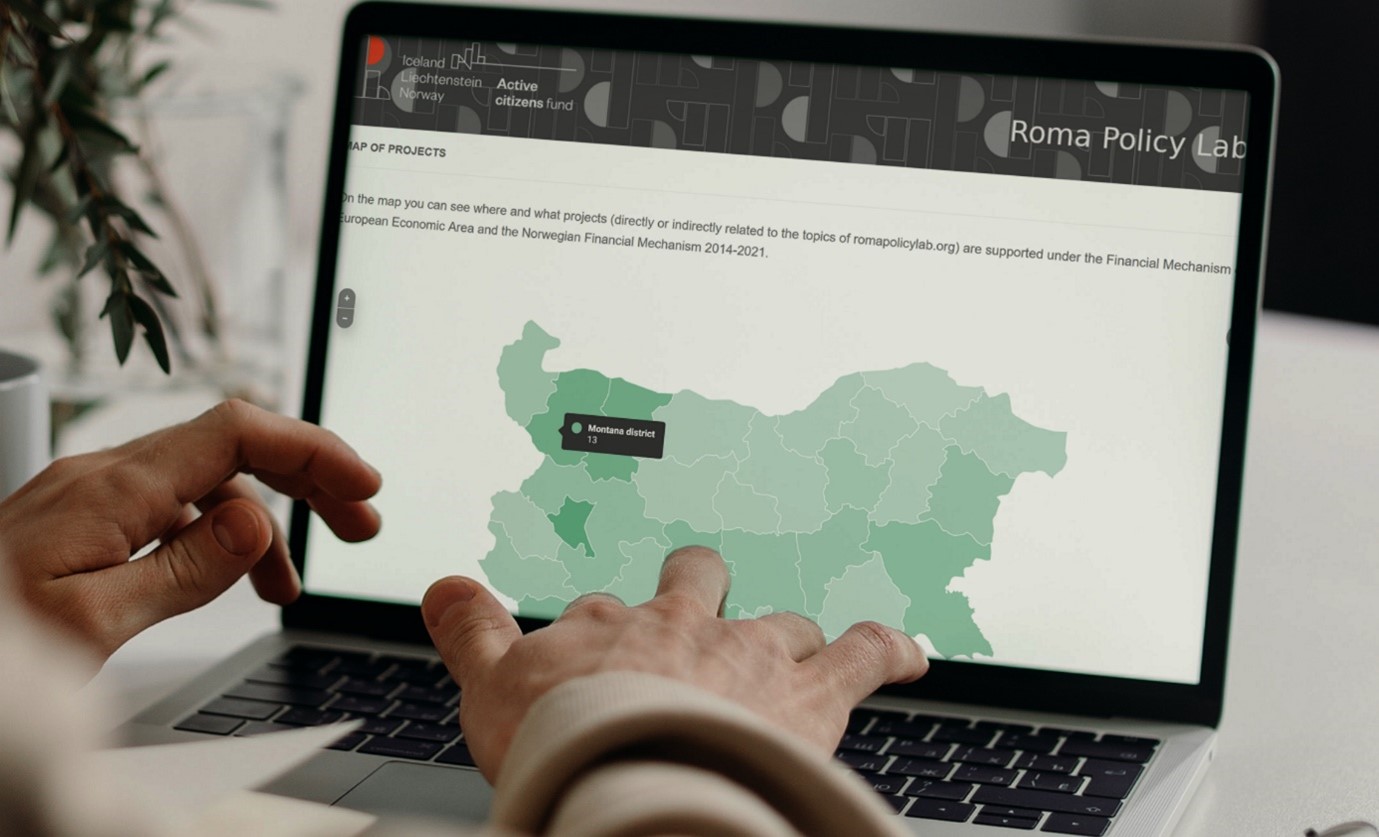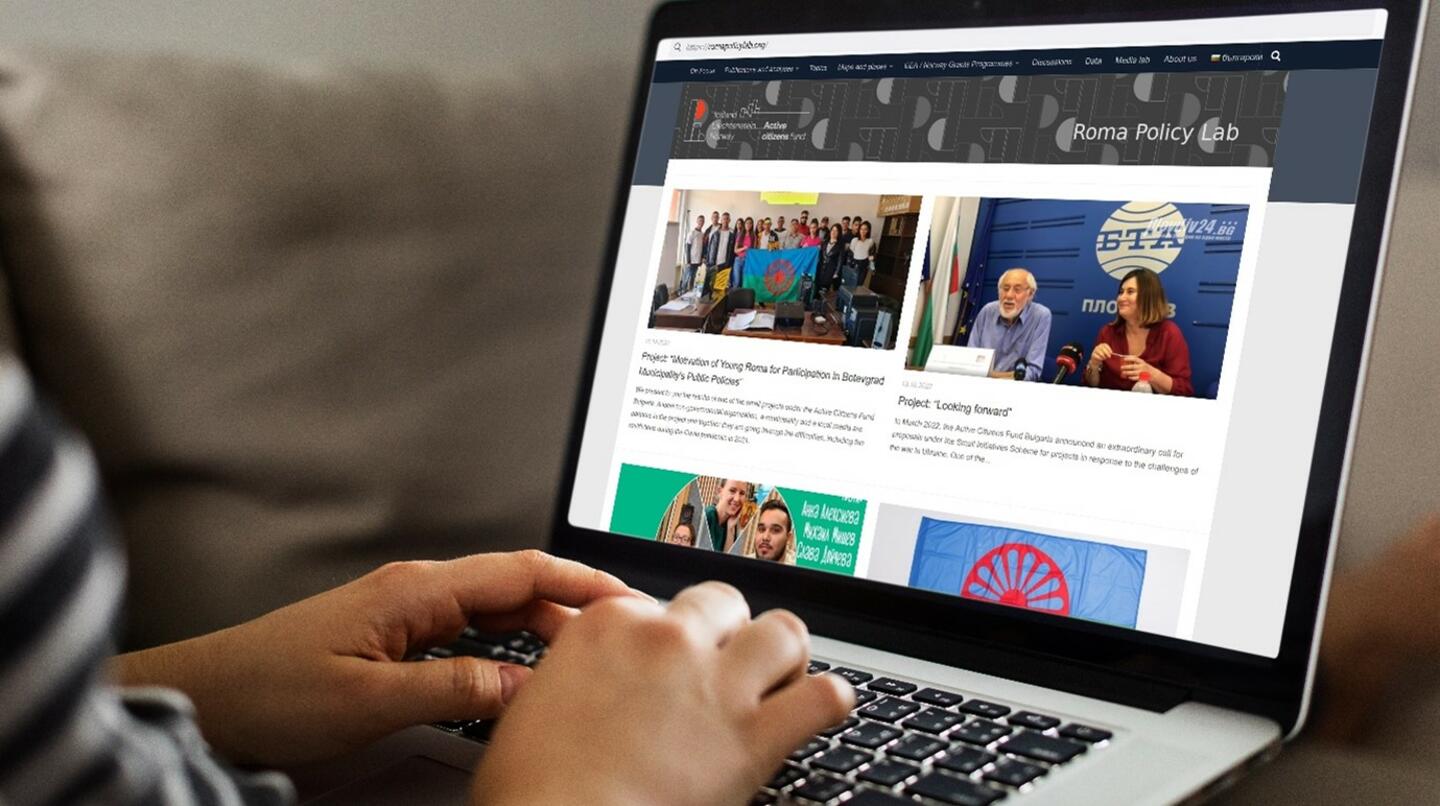Until now, mapping best practices and sharing insights across relevant actors who work on the topic could be a challenging process. From finding the right information to identifying relevant actors in the Roma field and exchanging information through the right channels, the experience could be overwhelming. It could also sometimes mean missing out on other people's valuable knowledge or losing out on visibility for inspiring initiatives.
"If an output or experience is not shared, it remains invisible - even if it is useful and precious."
Elitsa Markova, Fund Operator for the Active Citizens Fund in Bulgaria.
The Roma Policy Lab, launched a couple of months ago, aims to provide a space for promoting synergies and exchanging of best practices between Roma inclusion projects funded by the Grants in Bulgaria. The involved entities do so by mapping best practices on the new website and digitally sharing their ideas and initiatives through this new online portal accessible to everyone.

By grouping together inspiring project stories, policy papers, relevant contacts and insights, the Roma Policy Lab might help break the virtual barriers between all the actors working in the Roma Inclusion field. "The idea was to create a platform for sharing of knowledge on Roma inclusion between Civil Society Organisations (CSOs), experts and public institutions, to explore available options for synergies and experimentation, and last but not least, 'to host' this knowledge and the numerous project outputs," explains Elitsa Markova, Fund Operator for the Active Citizens Fund (ACF) in Bulgaria.
"The problems are so important - no one can solve them alone."
Elitsa Markova, Fund Operator for the Active Citizens Fund in Bulgaria.
The initiative was funded by the Active Citizens Fund in Bulgaria, the EEA and Norway Grants civil society programme. The Roma Policy Lab is the result of a close cooperation between the National Focal Point for the EEA and Norway Grants and the Fund Operator for the Active Citizens Fund in Bulgaria. "The grants play a key role as besides funds to institutions, they provide invaluable financial support for civil society activism, such as advocacy, monitoring, watchdog, research activities of CSOs in support of democracy, human rights, social inclusion, etc.," explains Markova.

One of the two main goals of the EEA and Norway Grants is to increase cooperation and relations between the Beneficiary and Donor States. Partnerships between entities from the Beneficiary States and their counterparts in Iceland, Liechtenstein and Norway are therefore a fundamental part of the Grants. "Many of the projects, including Roma-relevant projects on the ground are bilateral projects involving partners from the Donor States and there is a potential not only for one-way transfer of proven expertise and quality, but I believe, also for finding new and why not, innovative solutions based on experimentation," explains Markova.

The portal already hosts over a dozen stories and, according to Markova, there is a lot more in the making. The main goal of the Roma Policy Lab is not only to bring more visibility to the projects' results and to the inspiring efforts being deployed in the field, but also "to create a better understanding about the needs and the benefits of cooperating across Civil Society Organisation and institutions; greater acknowledgement of efforts and understanding about the need to design and implement Roma relevant projects with proven expertise, with care, love and creativity; greater emphasis on concrete problems, supported by evidence and data, and greater orientation towards problem solving," adds Markova.
And it doesn't stop there, as the platform is also open to any organisation who would like to share their ideas and join the community.
Find out more about our Roma Inclusion programmes here, and help us spread the knowledge about this new inspiring portal: the Roma Policy Lab.
